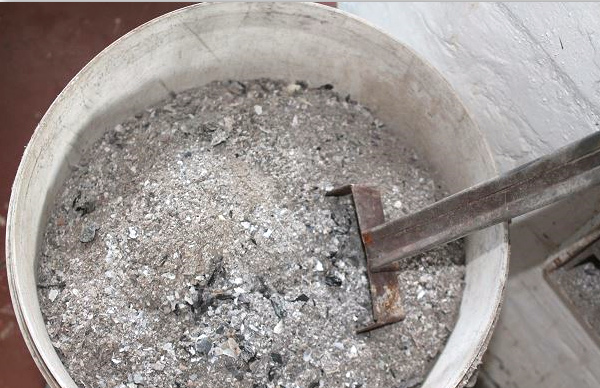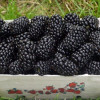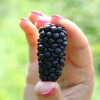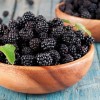Rules for growing high-yielding blackberries "Giant"
Content
- 1 Advantages and disadvantages of the variety
- 2 Video "Description of varieties of blackberries"
- 3 Planting seedlings
- 4 How to choose a landing site
- 5 How to plant correctly
- 6 Watering mode
- 7 Fertilization and feeding
- 8 Garter bushes on a trellis
- 9 Harvesting
- 10 Pruning and shaping the berry bush
- 11 Preparing bushes for winter
- 12 Video "Planting and caring for blackberries"
Advantages and disadvantages of the variety
The greatest advantage of this variety is its high yield. In addition, the fruits themselves have an excellent taste, they are sweet, juicy, with a slight pleasant sourness. This is the main description of this variety.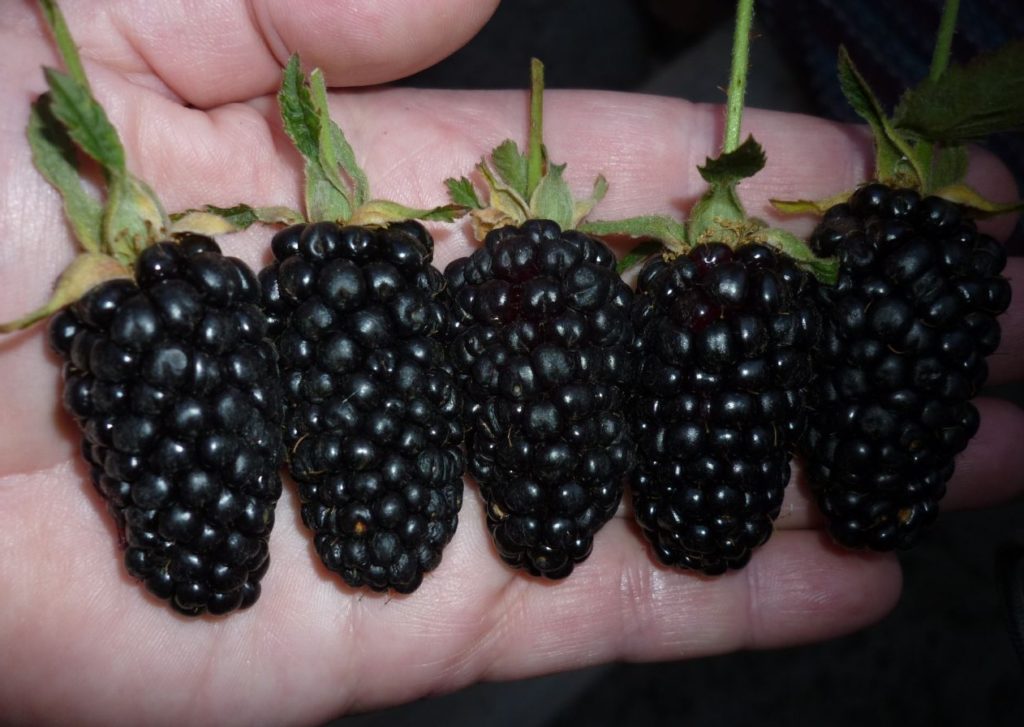
Sometimes this variety is confused with the Bedford giant, which has thorny shoots that spread along the surface of the earth. A distinctive feature of the English Bedford is the size of the berry, it is smaller and weighs about 7 grams. The Gigant variety has a ripe berry weight of about 20 grams. They have a glossy deep black color and a slightly wonderful elongated shape.
The fruits are enriched with calcium, iron and sulfur, which has a beneficial effect on the body, metabolic processes and general condition.
An important plus is the endurance of a temperature of -30 degrees, which implies a good wintering.
The disadvantage of this type of shrub is the poor tolerance of the lack of moisture in the soil. This can kill the plant and make it difficult to breed in dry areas.
Video "Description of varieties of blackberries"
From the video you will learn a description of the most popular blackberry varieties.
Planting seedlings
In order to choose the right seedlings, you should pay attention to the following things:
- The main roots should not be less than 2-3 pieces.
- The length of the root system of the seedling is not shorter than 15 centimeters.
- The height of the main shoot and the above-ground part should be 40 centimeters high.
- This variety is planted in the spring (from March to May), although the seedlings are moved to the ground in the fall (at the beginning of September).
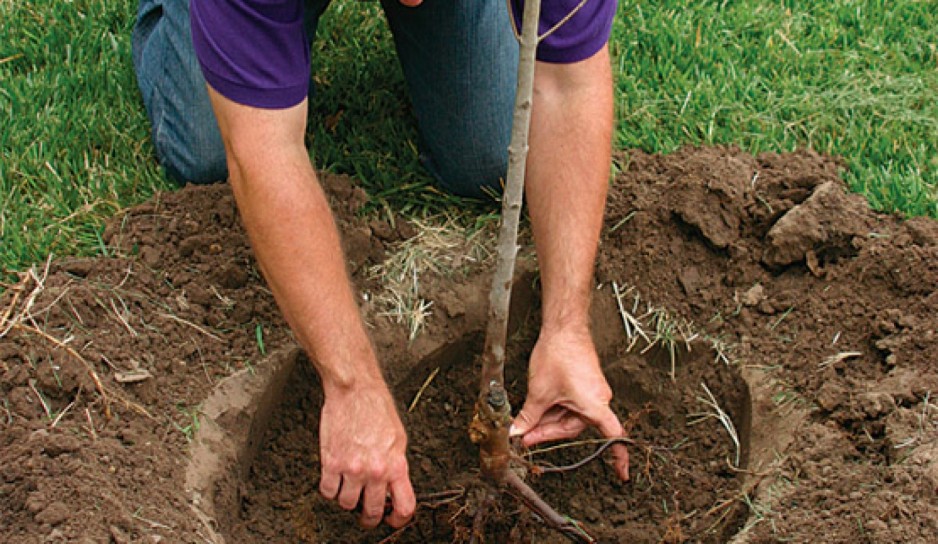
How to choose a landing site
Like every variety, blackberries have their own characteristics when planting and choosing the most optimal place. The shrub is photophilous and, with sufficient lighting, elegantly bears fruit with tasty fruits of gigantic size.
It is important to know that this variety of blackberries does not like too moist soil and therefore wetlands are not suitable for planting. The main moisture of the blackberry is necessary in the first stages of growth, when the shoots grow vigorously and the crop is formed. This is usually the period from April to July. It is best to plant the bush in drained loams with weak or neutral acidity (pH 5.5 - 6.5).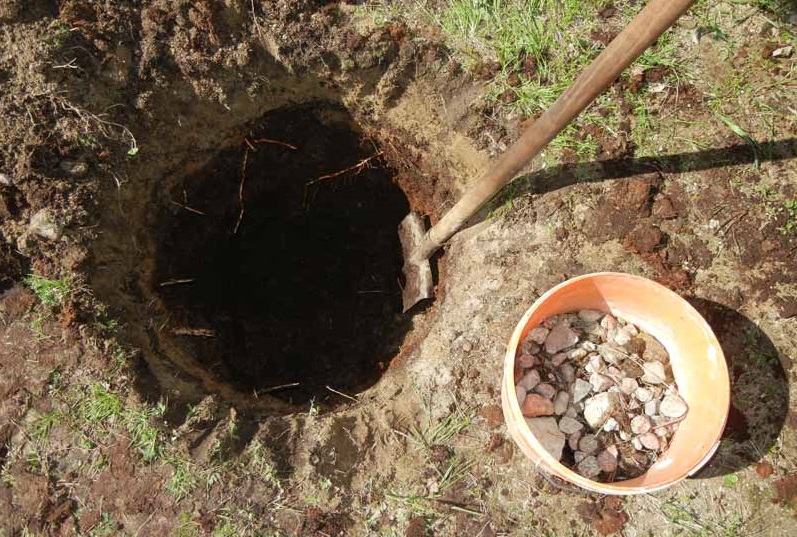
The place should be slightly windy, but at the same time with good access to sunlight.
To prepare the soil, it is pre-dug up to 50 cm and organic and mineral fertilizers are applied. If the soil is clay, sand and peat are added in small quantities. If the soil contains a significant amount of limestone, this can lead to yellowing of the leaves.
How to plant correctly
For competent planting, they dig a trench or pit 40x40 cm in size. Two-thirds of the depression is filled with fertile soil. Also, 5-6 kg of compost or humus, 30 g of superphosphate, 20 g of potassium salt or 30 g of wood ash are added to each pit. After that, the seedlings are planted.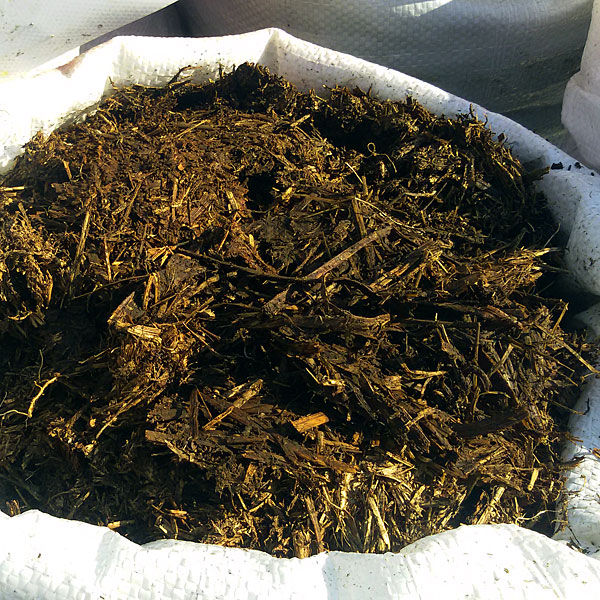
If the soil is too acidic, add a little lime to it.
If the roots dry out, they are previously placed in water for an hour. The resulting mixture of fertilizer is mixed with the top layer of soil and poured into a pit, where this variety of berries is planted afterwards.
In the process of sprinkling the roots, they should be carefully straightened in order to avoid bending and creases. The maximum length of the location of growth buds should be no more than 2-3 cm. When burying, it is necessary to slightly shake the soil with fertilizer in order to avoid voids, the earth around the perimeter of the root system is compacted.
Watering mode
Watering the Gigant variety is carried out every week. During flowering and ripening of berries, the shrub needs to receive a regular amount of moisture. Given that the roots of the variety are located deep enough in the ground, at least one bucket of water should be used per bush.
It should be noted that this variety can withstand drought much better than raspberries, but it will reduce the number of fruits and their size will be smaller than with sufficient watering.
Fertilization and feeding
This blackberry variety is fed in the spring until flowering. During this period, fertilizer consists of the following components:
In the fall, this variety is best fertilized with phosphorus and potassium. Thanks to these components, the shrub is better prepared for wintering, and also help the plant to strengthen the protective ability to resist external factors.
Garter bushes on a trellis
There are two ways to tie bushes:
- The first method is to shorten the shoots that have grown up to 15 cm from the height of the first wire. In winter or spring, eight of the strongest seedlings are chosen and tied to a trellis, all the rest are removed. After two years, the shoots are cut out.
- The second method involves tying up the shoots of this variety without pruning. They are cut off when they have reached three meters in height or adjoined nearby bushes. Young shoots cover the ground at this time.
Harvesting
Harvesting is carried out in several approaches, and the fruits are torn off as they ripen. The berry itself is plucked from the fruit stalk, which is edible. This is done carefully so as not to damage or crush the berry. The fruits of this variety are stored well, because they are quite elastic.
Pruning and shaping the berry bush
In order to properly cut this blackberry variety, weak, underdeveloped shoots are eliminated in the fall. If you remove the top of the shoots by 30 centimeters, the shrub will survive the winter better.
Also, the pruning procedure can be carried out in the spring, after the experienced cold weather. Then the "diseased" and damaged branches are removed. The same is done with diseased parts of the bush. So that the "infection" does not spread to healthy and strong branches and does not harm the plant as a whole. Without fail, lateral branches are shortened in the spring, leaving only a dozen buds.
Preparing bushes for winter
Even taking into account that the blackberry variety tolerates low temperatures and winter in general, it is better to cover the shrub. To do this, all the shoots of the variety are laid on the ground and covered with agrofibre. In addition, you can cover the bush with roofing material or sprinkle with sawdust, wide leaves of corn, humus. This will help to better tolerate temperature fluctuations and avoid rotting.
Pruning the tops also helps the blackberry to cope better with the winter cold season. Blackberries of this variety are very unpretentious to care for, frost-resistant, can tolerate drought, and the fruits themselves are tasty and very healthy. It is not difficult to store berries, and they can delight you with their taste and vitamin composition all year round.
Video "Planting and caring for blackberries"
From the video you will learn how to properly plant and care for blackberries.

